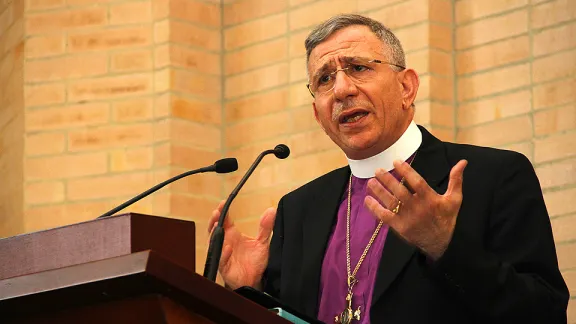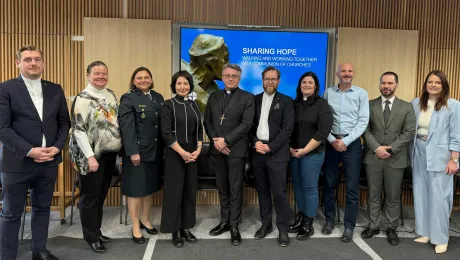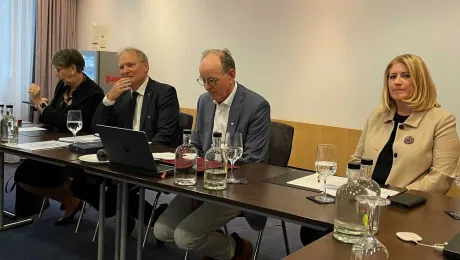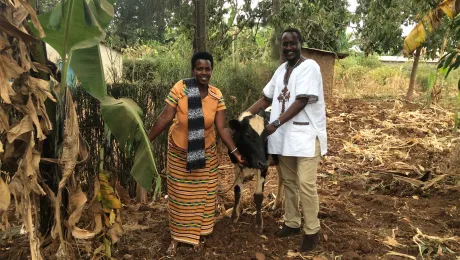
LWF President Bishop Munib A. Younan addresses the Council 2012 in Bogotá, Colombia © LWF/Milton Blanco
Council Meeting an Expression of Solidarity with Colombian Church
LWI Council Press Release No. 01/2012 – Bishop Dr Munib A. Younan, President of The Lutheran World Federation (LWF), has called on LWF member churches to be a voice for justice, peace and reconciliation in a world where extremism and armed conflict are growing.
Addressing the LWF Council today at the beginning of its 15-20 June meeting in Bogotá, Colombia, Younan said, “Justice and peace must be seen in our vision as two sides of a coin. One does not exist without the other.”
The theme for this year’s Council meeting, “Together for a Just, Peaceful and Reconciled World,” is derived from the vision statement of the LWF Strategy 2012-2017. The Evangelical Lutheran Church of Colombia (IELCO) is hosting the meeting, the first time an LWF governing body has met in Latin America since the 1990 Assembly in Curitiba, Brazil.
The president’s address elaborated the deep relation between peace and justice, with perspectives on economic, gender and environmental justice; human trafficking; pervasive armed conflict; nuclear power and weapons; and the misuse of religion to justify conflict.
Younan, bishop of the Evangelical Lutheran Church in Jordan and the Holy Land (ELCJHL), expressed “the deep solidarity of the LWF” with the Colombian church as it continues to struggle with the challenges of a conflict that has internally displaced more than 5 million people since 1985. Referring to his own context, Palestine, he emphasized the need for participatory and inclusive peace-building processes that involve churches as critical players in raising awareness and building the necessary political will.
He said that, in many parts of the world, religion had become a motivating factor for conflict, and cited recent deadly attacks targeting Christians and places of worship in Nigeria. In the Middle East, the Council of Religious Institutions of the Holy Land provides a space where Jewish, Christian and Muslim leaders meet and discuss how they can contribute to peace, thereby demonstrating that differences can be addressed through dialogue rather than violence.
In a world where extremism was growing, the church was called to continue promoting an education of respect where “we see the image of God in the other.” Religion, said Younan, “must no more be the source of conflict, but must be a driving force for peace built on justice and reconciliation based on truth and forgiveness.”
The ELCJHL bishop called for the LWF to maintain its longstanding focus on peace with justice and said he was confident the Lutheran Communion could make a lasting contribution to economic, ecological and gender justice.
The starting point for all church-based justice work, including the LWF’s diaconal activities, is God’s liberating grace, Younan stressed.
“Thanks to God’s liberating grace, we have been enabled to share our resources and thus provide humanitarian assistance, development aid, advocacy for human rights, ecumenical efforts and mutual inspiration in worship and education for the good of the entire world,” he added.


